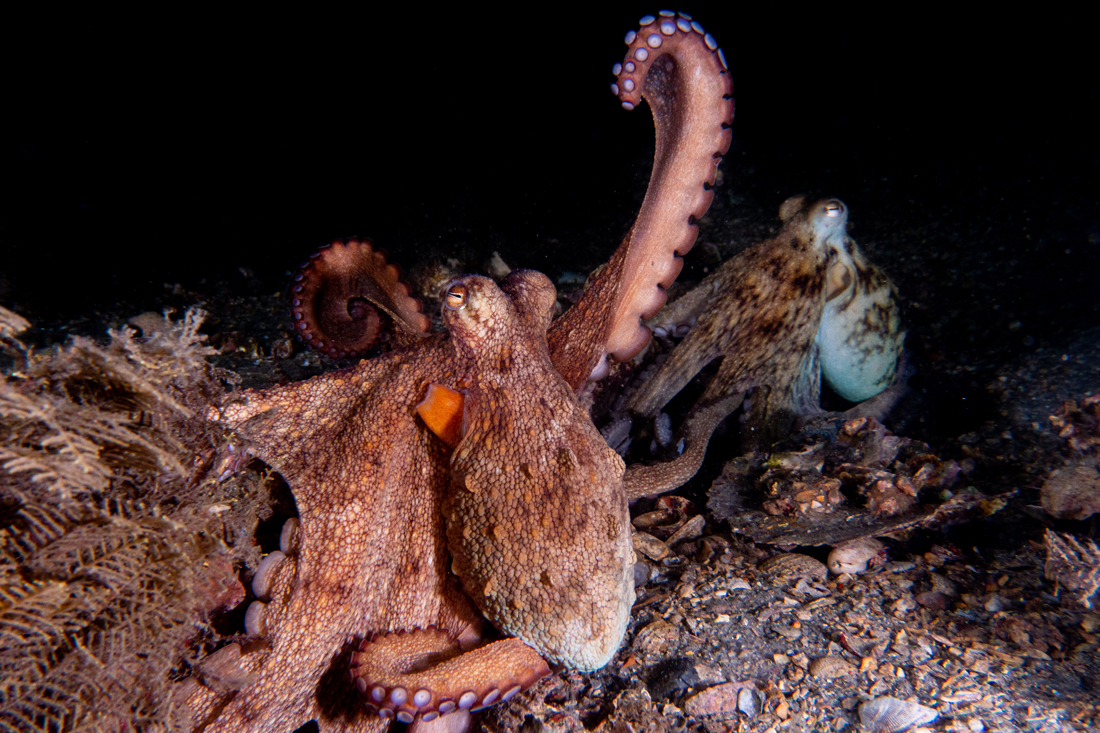
Honorable Mention: Arm Signals
Charles E. Schmidt College of Science
Octopuses have complex behaviors that involve skin color, skin texture, and body posture. By working under direct neuromuscular control, octopuses can change their behavior in less than one second. This is important for the animal’s camouflage, but also for communication. An octopus may flash a color or expand their arms and arm webbing to startle a predator, signaling “back off.” They also use color patterns and body postures to communicate with other octopuses. This could be between the same or different octopus species. For this mating pair, the male octopus is raising one of its right arms. This may be communication towards the female or a male competitor in the area. The shallow south Florida lagoon where the common octopus is abundant and many interactions are observed can help scientists understand the complex world of animal behavior.